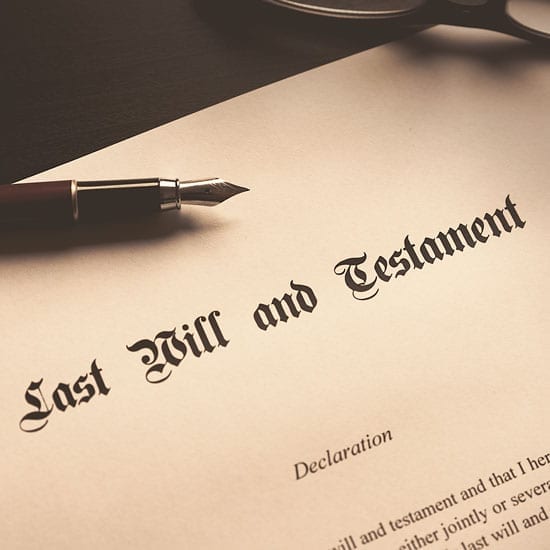What Happens to My Business if I Die Without a Will?
Dying Intestate is Complicated
“Intestate” means that someone has died without leaving a valid last will and testament. Though there are many common factors, because state law is involved, dying intestate makes for a complicated legal situation. Now, add in the fact that the deceased owned or was a part-owner of a business, and it gets worse. Just when you think you’ve heard enough, the type of business entity, sole proprietorship, partnership, or a corporate formation, really complicates things.
In any article short of a legal textbook, explaining the issues for every state’s laws is impossible. There are, however, some typically common elements that any business owner should consider in their life and business planning.
Sole Proprietorship or Partnership
The sole proprietorship is, for legal purposes, an extension of the personal property of the owner. When someone dies intestate, the court liquidates the estate of the deceased according to state law. The owner’s debts are paid from liquid funds, then the property is sold to pay them, and the heirs inherit remaining assets after all court and costs of the process. In some states, the heirs inherit the business, but they inherit the debts of the deceased as well. The company may cease to exist without the owner, but the obligations will still be there.
The first consideration in a sole proprietorship is that the value of the business is linked to the owner. At that owner’s death, the company loses significant value. The loss may not be total, as there may be customer lists or other assets that another person could take over and continue the business, but the courts are in charge in this situation. If those involved in the disposition of assets see some intangible value, they’ll likely sell it along with the other assets to pay off the deceased’s debts. Anything left would go to heirs according to state law.
In the case of a partnership, much of the same law applies. There could be state law that allows the other partners to buy out the deceased partner’s interest, with that buyout money becoming a part of the estate. Now, however, you have other partners who may or may not be able to continue operating the business without the deceased person’s expertise and involvement.
Corporate Entities’ Principle Shareholder
With S-Corporations and many LLC and LLP entities, they are separate legal entities from the shareholders. Theoretically, the business would continue to operate as usual, and the issue would be how that deceased owner’s shares would pass.
With a will, the shares of the principle would pass to the heirs according to its terms. Without a will, in many states, the shares would be considered an asset and handled like other assets, and possibly sold pay to debts of the deceased. State law takes over in this situation.
A lot of concern will be on the part of any other closely held S-Corp or LLC/LLP owners when a principle dies. What duties were involved, and are there others who can handle them? Is a great deal of the value of the business wrapped up in goodwill brought to the business by the deceased owner? The disruption, even if eventually resolved, can damage an otherwise profitable business.
Why Not Plan and Avoid the Issues?
It’s impossible in this format to address the many issues, but there is one single action that can avoid them in the future. When working on a business plan, or meeting with current or future business partners or shareholders, make planning for the death of the principle a priority.
Insurance
There are specialty “key person” and “buyout” insurance policies that will immediately kick in to buy out the deceased interest so that the business can continue to function with little disruption.
Partnership Agreement
For partnerships, the partnership agreement should specify what happens when a partner dies. The agreement could include a provision for the remaining partners to buy out the deceased’s interest, with that buyout money passing to heirs or according to state law if there’s no will. At least the business can continue.
A Trust
You could set up a trust to hold your ownership share of the business with the trust controlling the disposition of that ownership upon your death. This is one way to reduce the tax burden for your family.
This overview should be the impetus for you to add estate planning to your business and financial plan. Sit down with an experienced professional estate planner and an attorney if necessary, and first have a Will. Then determine if other planning measures will help to dissolve the business or transition it smoothly for others to operate.

